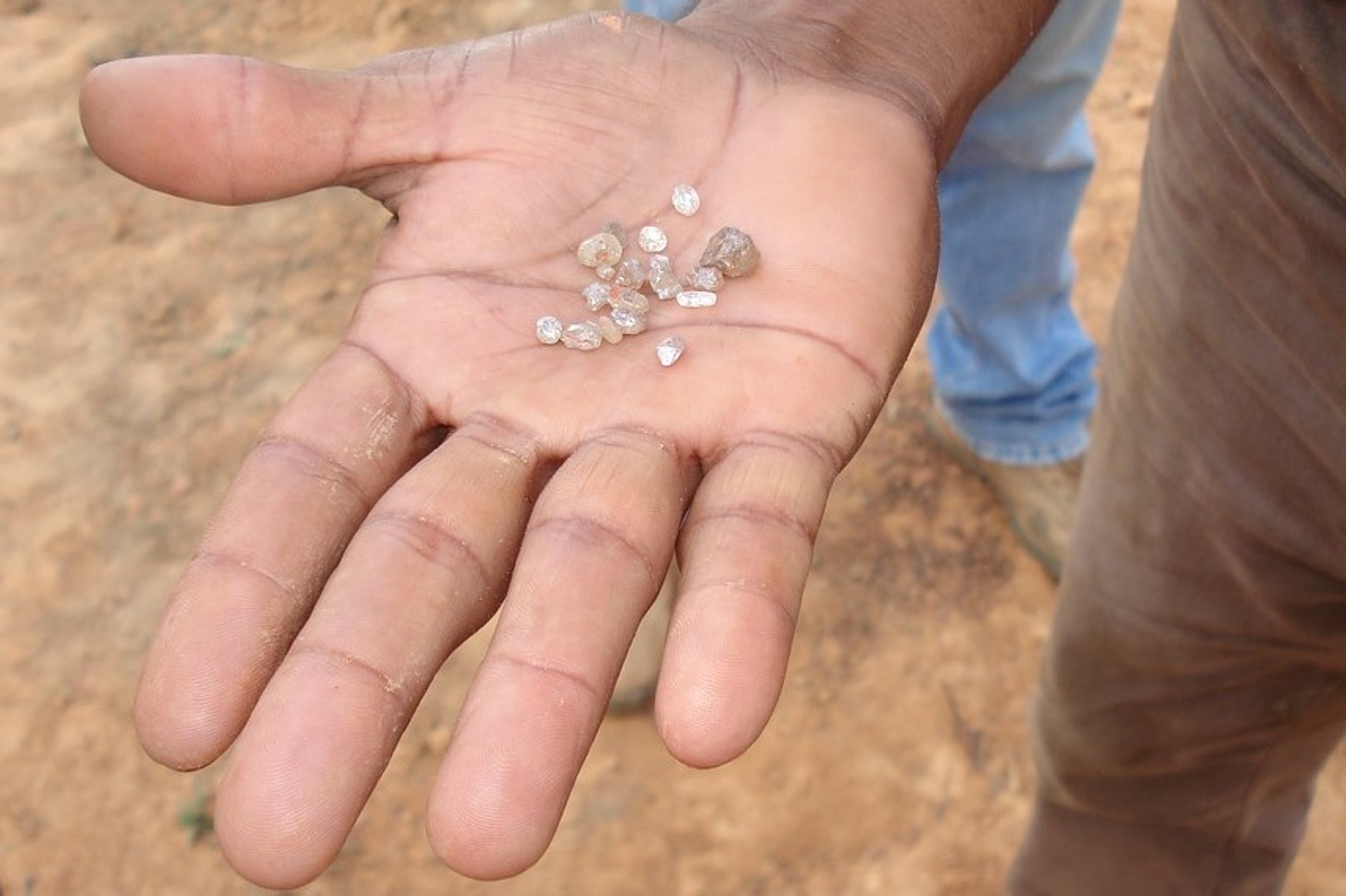The diamond industry does a lot more than put a ring on your finger: It puts money in the pockets of miners across the globe.
More than 10 million people worldwide rely on diamond mining for their income, and these workers support an estimated 45 million family members.
With so many livelihoods dependent on the diamond trade, both consumers and industry players are taking steps to ensure revenue from mining directly benefits the communities that participate.
Today, these initiatives have magnified the positive impact of the diamond trade on mining communities around the world. Governments, nonprofit organizations, manufacturers and miners continue to work together to create sustainable development, improve conditions for workers and enforce ethical sourcing.
Here are some of the ways the diamond industry supports developing countries:
Supporting Education
In many mining communities, children and teens do not have access to affordable education. Organizations like the Diamonds Do Good (formerly Diamond Empowerment Fund) and Diamond Development Initiative (DDI) collect donations from diamond companies at all levels of the supply chain to fund schools and scholarships in mining communities.
Currently, DDI operates four mobile schools in the Democratic Republic of Congo, with more in the works. In 2017, 117 mobile school students passed national exams to graduate from elementary school. DDI’s High School Support Program helps these students continue their education.
Diamonds Do Good partners with existing institutions to improve access to education for students in mining regions. One such institution is Veerayatan, a school in India. Students like 13-year-old Maya attend Veerayatan to escape cyclical poverty, avoid child marriages and pursue their academic interests. Altogether, Diamonds do Good supports six schools in Africa and India.
Strengthening Local Economies
The diamond trade contributes $7.6 billion annually to Africa’s economy and employs millions of people. But the diamond trade’s most profound impact is at the local level.
Most miners spend their incomes on local goods and services, which pumps money into local economies, creating a ripple effect of economic benefits. Some miners even use their earnings to launch small businesses and create sustainable income for their families.
A prime example is in Central Mozambique, where government support of small-scale mining during the last ten years led to economic booms in farming, construction and trade.
Creating Jobs for Women
For many women in developing countries, mining provides a path to financial stability: Women in Africa earn six times more in mining jobs than in other work.
In countries like Mali and the Democratic Republic of Congo, small-scale mining projects offer women economic opportunities they can’t find elsewhere. For example, when women in Mali work on their husbands’ or fathers’ farms, they usually relinquish their earnings to a male relative. Because of this, a growing number turn to mining as a way to earn money they can keep.
In the Democratic Republic of Congo, mining serves as an important source of income for women because of its limited barriers to entry. There are no educational requirements, and mining often provides more consistent income than agricultural work, where returns can be unpredictable.
Due to the growing percentage of women in the mining workforce, equitable pay and working conditions for women are foremost development goals for organizations like DDI and Diamonds Do Good, along with their corporate sponsors.
Enhancing Communities
The diamond trade also contributes to infrastructure development. Botswana, a country in which diamond mining accounts for about 40 percent of gross domestic product, has funded countless public projects with revenue from diamond mining.
Before diamonds were discovered in Botswana in the mid-1970s, the country had few paved roads or telephones, and only 29 percent of the population had access to clean water. Today, the diamond trade has financed a national system of paved roadways and telephone lines, and 90 percent of the population has access to safe water.
The country has made significant gains in life expectancy, educational achievement, infant mortality and per-capita income, as well. For example, in 1970, life expectancy in Botswana was 37 years. By 1990, that number rose to 60 – 10 years above the average in Africa.
Sir Ketumile Masire, former president of the Republic of Botswana, said the country’s careful stewardship of its diamond revenue is what allowed such pronounced development:
“Since diamonds were discovered in Botswana some 40 years ago, we have carefully managed our mineral wealth to ensure that it benefits the people of Botswana. Based on our economic goals and strategies, a large share of our public sector resources is devoted to providing infrastructure. We learned from the experience of others that processing minerals didn't automatically lead to economic development.”
According to Botswana politician G.K.T Chiepe, income from diamonds also finances rural health centers, public schools and funds for drought relief.
Providing Healthcare
As diamond manufacturers recognize the importance of supporting sustainable development in diamond mining communities, large-scale charitable projects become more commonplace.
In Surat, India, the city’s diamond sector donated $75 million to build a hospital in the city’s center. The 70,000-square-foot, state-of-the-art facility provides free or low-cost treatment to tens of thousands of citizens who previously had limited access to health care.
How You Can Help
If you’re interested in supporting miners and their families, there are multiple ways you can help:
- Donate to organizations like DDI and Diamonds Do Good that actively support mining communities
- Invest in real diamonds. Synthetic diamonds do nothing to improve conditions for miners
Gage Diamond’s Commitment
At Gage Diamonds, we source our diamonds from De Beers site holders, whom in turn source their diamonds from only a handful of the largest diamond miners in the world. By only sourcing our diamonds from the most reputable site holders, we believe that we can greatly limit the possibility of supplying a diamond that was mined under unethical conditions in conflict zones. By purchasing a real diamond, you are funding an industry that supports millions of individuals in non-conflict zones that rely on the diamond mining industry for their livelihood.
Have a question? We can help!
Gage Diamonds is Chicago's premier jewelry showroom and online retailer of engagement rings, wedding bands, and fine jewelry. We offer a selection of dazzling handpicked diamonds, including certified natural diamonds.
We’re committed to helping you find the ring of your dreams. For inspiration, browse our website or set up an appointment with a member of our trusted staff at our in-person showroom.
We offer no-credit-needed financing – feel free to apply and get your approval within 24 hours!
Pay over time, because love shouldn’t wait.

